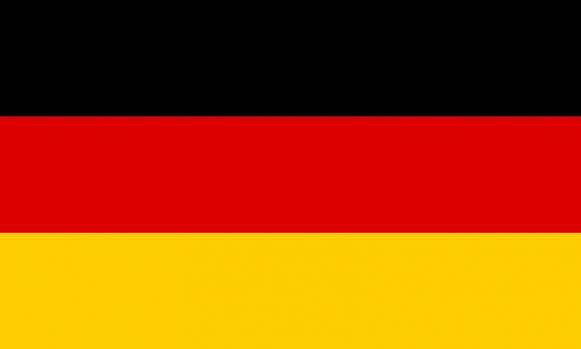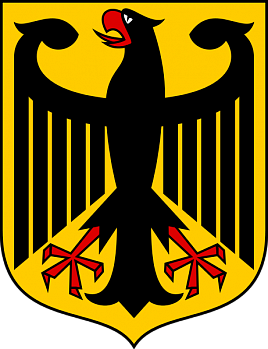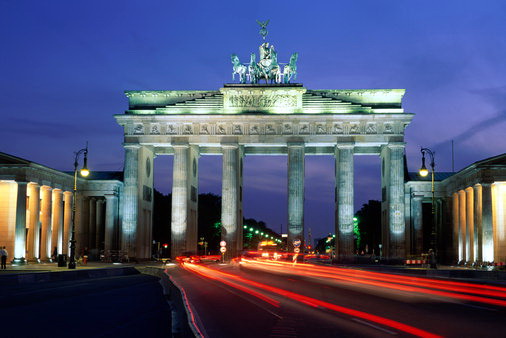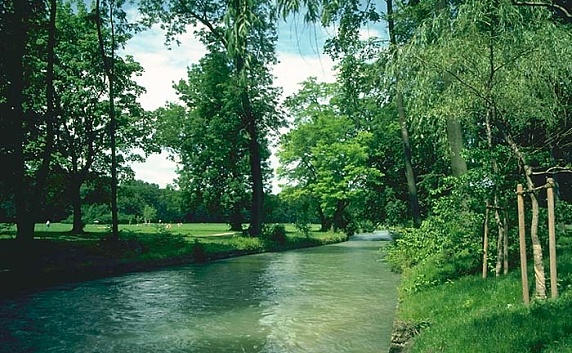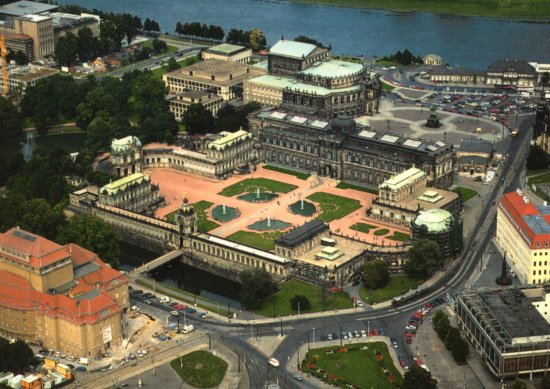 Федеративная Республика Германия
Федеративная Республика Германия
Interview of Official Representative of the Russian Ministry of Foreign Affairs A. K. Lukashevich to RIA Novosti in Relation to the Forthcoming Meeting of the Russian, German and Polish Ministers of Foreign Affairs in Berlin
Question: On 21 March Berlin will host an informal meeting of the Russian, German and Polish Ministers of Foreign Affairs. What issues will be in the focus of attention?
Answer: In the course of the meeting of S. V. Lavrov, G. Westerwelle and R. Sikorski it is planned to discuss the progress of realization of agreements, reached at the trilateral negotiations in Kaliningrad in May 2011, as well as to outline new prospective directions of cooperation of our countries.
The ministers will consider the prospects of cooperation of the three countries on a current agenda of Russia-EU and the Russia-NATO Council relations, as well as their interaction in regional institutes, including the Council of the Baltic Sea States (CBSS) in the context of the forthcoming meeting of the heads of governments of the CBSS countries (Stralsund, 30-31 May 2012) and transfer of the chairmanship in the Council from Germany to Russia this year.
It is supposed to touch upon a number of joint projects of a regional significance with respect to the socioeconomic development of Kaliningrad region.
The ministers will continue to exchange opinions on a wide range of current international problems, including the situation around Syria and, generally, in the region of North Africa and Middle East and a subject of crisis settlement.
Question: Could you mention the directions, in which the trilateral interaction between Russia, Germany and Poland is formed?
Answer: Over the last years the trialogue between Russia, Germany and Poland has sequentially developed on various aspects, being of mutual interest. Thus, in the line of foreign offices, the contacts have been arranged at the level of deputy ministers, heads of territorial subdivisions and departments of foreign-policy planning, informal consultations on various international issues. The practice of conduction of joint seminars on the European security issues is enhanced.
Exchange of opinions between academic and politological institutes has assumed a sustainable nature with involvement of non-governmental organizations, including on the historical theme. Under the patronage of the Minister of Foreign Affairs of our countries from 2009, international scientific conferences of historians, devoted to memorable dates of the common history, have been organized in Warsaw, Berlin and Moscow. The last one on the subject "Images of the World War II and Their Influence on International Relations" was conducted in Moscow on 20-21 January this year and attracted quite a representative range of participants. Cooperation in the line of Universities of Kaliningrad, Toruń (Poland) and Frankfurt (Oder) (Germany) was started. Interregional measurement of ties, cultural and humanitarian aspects, youth and educational exchanges have substantial potential.
A project has been launched under the OSCE aegis together with France on the creation of a network of institutes – MSIIR (U), OSCE Research Center at the University of Hamburg, French Foundation for Strategic Research, Polish Institute of International Relations – for analysis and working out of recommendations on the issues of formation of the Euro-Atlantic and Eurasian "security community". The first conference will be held on 20 March in Berlin.
The forthcoming ministerial meeting in a trilateral format is aimed to fix the main directions and add new impulses to the Russian-German-Polish cooperation, opening new opportunities for the formation of a general positive political climate in the Euro region, consideration of current issues of improvement of the general European security architecture, promotion of practical work on formation of relations between Russia, EU and NATO by the formula of strategic partnership. They also take into consideration the positive experience gained in the framework of "triplet" Russia-Germany-France in the line of "Weimar triangle" comprised of Germany, France and Poland and other informal multilateral grounds that have become an integral part of the European diplomacy practice.
Question: What can you say on the condition of the bilateral Russian-German and Russian-Polish relations?
Answer: Germany is one of the priority strategic partners of Russia in global policy and European affairs, with which a diverse, full-format and mutually respective cooperation is sequentially developed. Ramified economic ties are a stable foundation and a driving factor of the whole complex of the Russian-German cooperation. According to the last year results the commodity turnover between Russia and Germany has reached a record parameter of 71.9 billion US dollars (increase in comparison with 2010 – 37.2%).
Positive processes in the Russian-Polish relations have significantly strengthened over the last years. The political dialogue has assumed a sustainable nature, the reached agreements on activation of the main mechanisms and practical directions of bilateral cooperation are sequentially realized. From a number of the future-oriented initiatives, realization of the agreement of the Russian and Polish Presidents on the creation of parallel acting Centers of dialogue and accord in our countries should be marked out. According to the 2011 results, the mutual commodity turnover with Poland amounted to over 28 billion US dollars, which is higher than the last year result by more than one third.
19 March 2012
